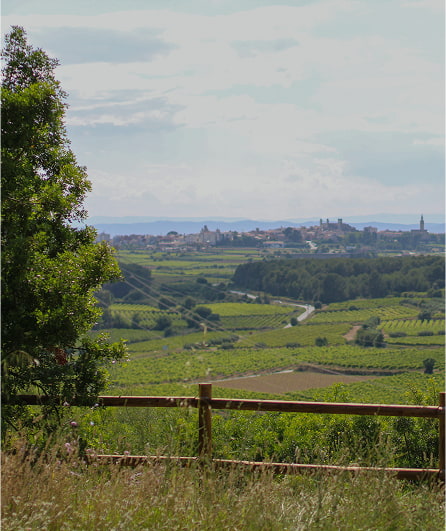
Based in Castellet Castle (Castellet i la Gornal, Barcelona), UNESCOMED is the first Center within the Man and the Biosphere (MAB) Programme to combine public commitment with private financial support.

The establishment of the Center was made possible through an agreement between the Kingdom of Spain, the United Nations Educational, Scientific and Cultural Organization (UNESCO), and the Abertis Foundation, which provides core funding.
The Centre also benefits from the collaboration of the Forest Science and Technology Centre of Catalonia (CTFC) and the Autonomous University of Barcelona (UAB), whose technical and scientific teams contribute to its activities.
Such as climate change, biodiversity conservation, and sustainable socio-economic development. Its mission is to contribute to a more resilient and cohesive Mediterranean region by promoting applied research, capacity building, and collective action, with the aim of generating transformative, knowledge-based impact.
As part of this effort, UNESCOMED also coordinates the technical secretariat of the UNESCO Mediterranean Biosphere Reserves Network (MedMAB), supporting these territories as living laboratories for sustainability. From a Mediterranean perspective and with a global outlook, the Centre fosters interterritorial cooperation to co-create and scale sustainable solutions.
We promote applied research in climate change, circular bioeconomy and nature conservation to strengthen the resilience of territories.
Combining science, local knowledge and networking to make Mediterranean Biosphere Reserves Living Labs for sustainability and collective learning.
We transfer knowledge to scale up transformative solutions that address shared challenges.
Encouraging capacity building among different stakeholders, strengthening inclusive governance processes that contribute to building a fair and sustainable future.
We foster cooperation and exchange between territories, with a Mediterranean perspective and international reach, to scale up sustainable solutions to shared challenges.
We coordinate the MedMAB network Technical Secretariat, promoting mutual learning and collaboration between Mediterranean Biosphere Reserves and various stakeholders to generate transformative actions.


Dra. Roser Maneja
UNESCOMED Scientific Director (UAB & CTFC)
Núria Pou
Coordinator of the International Center for Mediterranean Biosphere Reserves
Alba Bonàs
MedMAB Coordinator
Dra. Mari Carmen Romera
Researcher (CTFC)
Esteve Viñals
PhD Student (UAB)
Berta Carreño
Communication specialist (CTFC)
Castellet Castle, home to the UNESCO International Center for Mediterranean Biosphere Reserves (UNESCOMED), is a unique space where historical heritage is placed at the service of sustainability, cooperation, and science.
Located in Castellet i la Gornal (Alt Penedès), south of Barcelona and just a few kilometers from Sitges, Vilanova i la Geltrú, and Vilafranca del Penedès, this Iberian-origin castle—first documented in the year 977—has served as a strategic territorial stronghold for over two millennia. Its historical evolution is reflected in architectural elements from various periods, such as the 9th-century tower, the 11th-century domicilium manor, and the Gothic palace from the 13th–14th centuries.
Declared a Cultural Asset of National Interest by the Government of Catalonia, the castle was restored between 1999 and 2001 under the direction of Abertis. The award-winning restoration respected its historical value while equipping the site with modern, functional facilities. Today, the castle hosts an auditorium, three meeting rooms, a documentation centre, and serves as the headquarters for both UNESCOMED and the Abertis Foundation.
The castle is also open to the public through guided tours, offering visitors the chance to explore its history, architecture, and privileged natural setting next to the Foix Natural Park.



